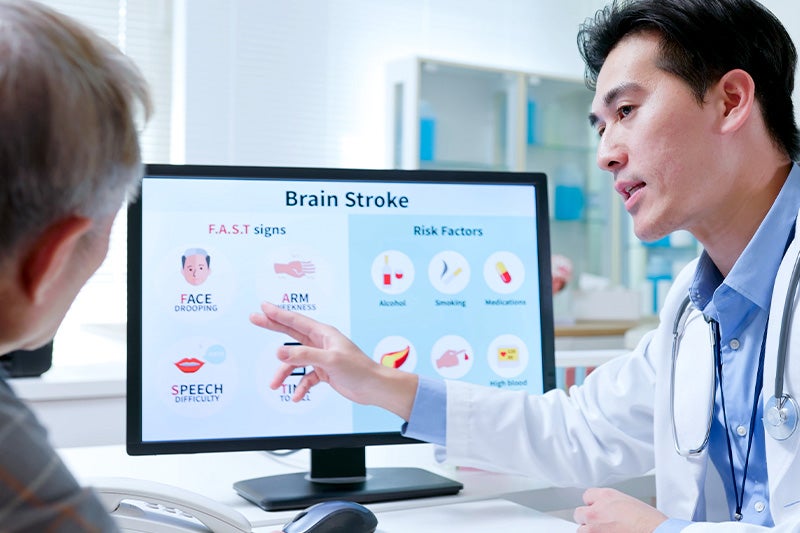Stay Ahead of Your Health: Essential Screenings for Every Stage of Life
June 16, 2025Categories: Healthy Living
Preventive care isn’t just about catching problems early, it’s about giving yourself the best chance to live well, stay active, and enjoy the life you love. Whether you're in your 20s or your 60s, health screenings are one of the most important tools you have to protect your health.
At St. Mary’s, our compassionate primary care providers are here to guide you through every stage of life with care plans tailored just for you.

Health Screenings In Your 20s and 30s
Why it matters: This is the foundation-building stage of your life. Establishing care early can help prevent future issues by creating a healthy baseline of blood tests, hormone levels, and other factors that are specific to your health and will allow you to and your provider to see deviations from your standard of health with greater ease.
Recommended Screenings for individuals between 20 to 30 years of age:
- Blood pressure check (at least every 2 years)
- Cholesterol screening (starting at age 20, especially if there’s a family history)
- Diabetes screening (especially if you have risk factors like obesity or family history)
- Skin checks for abnormal moles or sun damage
- Pap test (cervical cancer screening) every 3 years (starting at 21)
- STI testing if you are sexually active
- HPV vaccine if not received earlier
- Mental health screening (depression, anxiety)
💬 Why see a PCP now? It’s much easier to stay on top of prevention if you already have a provider who knows your history and lifestyle.
Health Screenings to Begin In Your 40s
Why it matters: Many chronic conditions begin to emerge in the 40s. This is a key time to get proactive.
Recommended Screenings:
- Blood pressure, cholesterol, and diabetes checks continue
- Mammogram begins at age 40 for most women (starting age and frequency depend on risk factors)
- Pap test + HPV co-testing every 5 years (or Pap every 3 years alone)
- Colon cancer screening (starting at age 45 for most people)
- Prostate cancer screening discussion for men, especially African-American men or those with a family history
- Weight and BMI check
- Vision and hearing check
- Mental health and cognitive wellness screening
Remember: Your 40s are a great time to begin having a dialogue with your Primary Care Provider regarding perimenopause, heart health, and metabolic changes.


Health Screenings to Start In Your 50s and Beyond
Why these screenings matter: Risk increases for many types of cancer, heart disease, and osteoporosis.
Screenings to Prioritize:
- Mammograms continue (every 1–2 years)
- Colonoscopy or stool-based colon cancer screening continues
- Bone density scan for women at 65 (or earlier if high risk)
- Prostate cancer testing discussion continues with your PCP
- Lung cancer screening (starting at 50 if you’re a current/former smoker with 20+ pack-year history)
- Hepatitis C screening at least once (born 1945–1965 or other risk factors)
- Vaccinations: shingles, pneumonia, COVID-19 boosters, flu
- Hearing and vision testing
- Cognitive health and depression screening
👨⚕️ Important Reminder: Staying up-to-date with your screenings can lead to early detection, which means more treatment options and better outcomes.
Your Health, On Your Terms
You don’t have to wait until something feels wrong to take care of yourself. With regular checkups and timely screenings, you can stay ahead of disease and feel more confident in your body, your health, and your future.
Whether it’s been a few years since your last physical or you’re unsure which screenings you need, our primary care providers are here to help.
How a Primary Care Provider Supports Your Health Through the Years
A trusted Primary Care Provider does more than just run tests, they guide you through the why behind screenings, interpret results, coordinate specialty care, and offer lifestyle advice tailored to your age, personal health goals, and needs.
Your Primary Care Provider Will Also:
- Track your health trends over time
- Make personal recommendations based on family history
- Support you through life transitions (like menopause, retirement, caregiving, or chronic condition management)
- Provide emotional and mental health support

Take Control of Your Health Today
Preventive care is powerful. Let’s make sure you’re getting everything you need to stay well, now and for years to come.

Find a Primary Care Provider
Same Day Appointments Available
Primary Care Close to Home
Find a Location Near You



